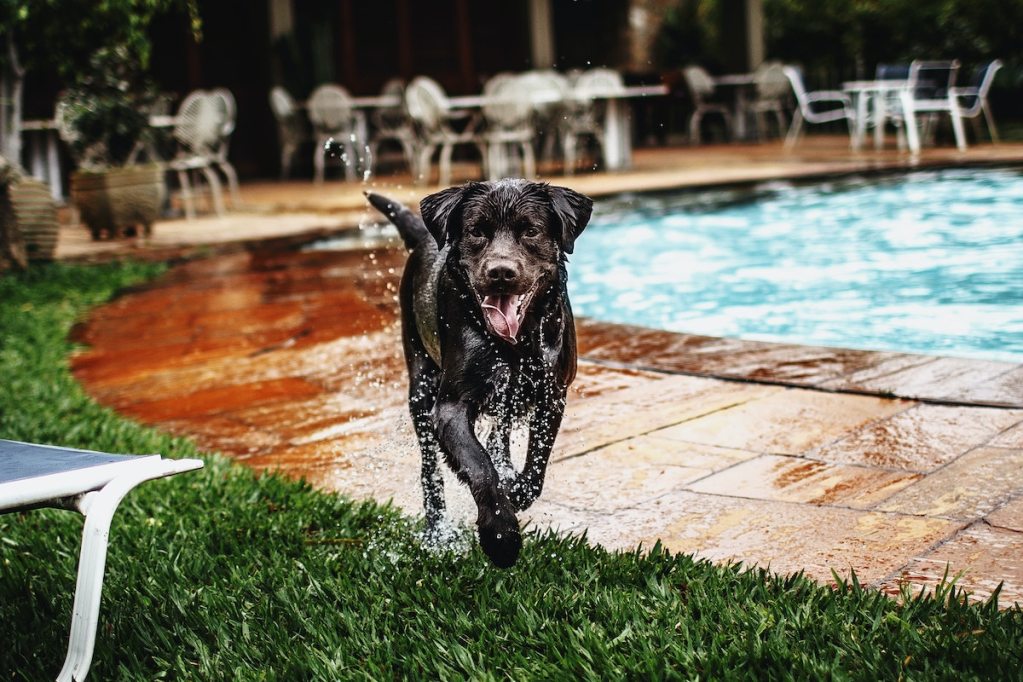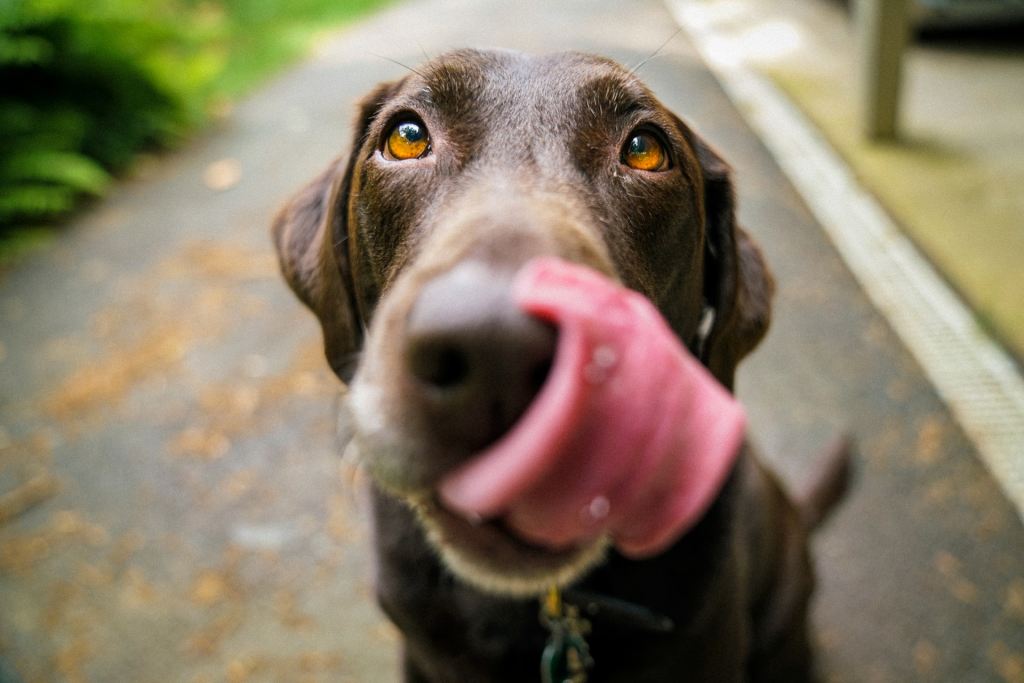With their friendly exuberance and unwavering loyalty, Labrador retrievers are absolutely adored. Just ask the American Kennel Club, which listed this breed as the number one most popular breed for over 20 years in a row.
So, what makes these pups so popular? Many people love Labs for their athleticism and eagerness to run, which make them the best companions for jogging or hiking. Their friendliness makes them a great choice for families, too — especially since Labradors are known to be gentle with children.
As wonderful as these traits are, there are so many more Labrador retriever characteristics that will make you fall in love with this breed. You may not have heard of them all yet, but that doesn’t make them any less true. These are five more reasons to give your heart to a Lab, whether through foster, adoption or just saying hello to a cute pup you meet (just don’t forget to ask their owner first.).
Labs are built for the water

Retrievers were bred to retrieve (surprise!) waterfowl and small game while hunting with their owners. Because of this, many Labs today still love to be near the water. Their bodies and coats make this easier for them than most dogs, though an affinity for aquatics never hurts.
Labrador retrievers have a water-resistant, double coat which makes them sleek and fast underwater. Because the coat is so short, not much grooming is needed, either. Bathing and brushing will do! As for their extremities, you’ll notice a thick and erect “otter tail” as well as webbed feet that propel these pups through the water.
These dogs are friendly to everyone they meet

Everyone knows how sweet and friendly Labradors can be, but few know just how strong that puppy love is until they experience it for themselves. The American Kennel Club lists Labs as extremely amiable to children, other dogs, and strangers (AKA, everyone is your dog’s new friend). This is a fantastic trait to have when a dog is in public often, and it can even be what makes a Lab a perfect therapy dog, service animal, or family dog.
Adaptability is a family dog’s most helpful tool

Many qualities can make Labrador retrievers an excellent family dog, but their adaptability and easygoing attitude put them at the very top of the list. Despite their larger size and higher energy level, Labs will be happy to hang out with loved ones no matter where and when. Although living in an apartment isn’t ideal for any large dog, these sweet retriever dogs can be excellent roommates in smaller spaces, too. Just make sure they get plenty of exercise and mental stimulation!
Because Labs are so easygoing, they’re less likely to be caught off guard by a well-intentioned child. Anything from ear pulling to eye poking could happen in a fraction of a second, but these dogs can be trusted not to react with anger. They are much more likely to simply walk away. That being said, even the calmest of dogs has a breaking point, so be sure to teach children to interact gently with animals of all shapes and sizes.
Eager to please can mean easy to train

Because Labs are so people-oriented, they’re eager to be with their families as much as possible. Talk about loyalty! These outgoing canines want to make their humans happy, too, so training may be more than just work to them — it can be fun! With some positive reinforcements and the right rewards, agility or obedience practice can feel a lot more like playtime with your retriever.
Of course, not all Labrador retrievers will be easy to train. Not every individual fits into the description of the breed as perfectly as others do, so don’t be discouraged if your pup doesn’t get the hang of it right away. After all, high energy can sometimes mean high distractibility, too.
Labs’ retrieving instincts are strong

Any dog is bound to be at least somewhat in touch with their instincts, but this can look different for each pet. For Labradors, you may see some mouthiness during play or even destructive chewing when they’re feeling bored or angry. It’s worth noting that mouthiness is not the same as biting; when a dog mouths something, they simply put their mouth around it and do not bite down. You can often distract a mouthy pup by giving them a dog toy to carry around instead.
Because of their mouthy retrieving instincts, Labrador retrievers can be excellent partners in fetch and sports. Several Labs have gone viral for helping their people around the house: bringing objects to them, opening the door, and even more. These smart dogs are capable of so much!
Food is life for Labradors

If you’re like a Labrador retriever, you appreciate a good snack. These dogs are just as eager to work for a treat as they are to work for attention, which can make training as easy as it could possibly get. Where it gets complicated, though, is your pet’s dietary health. Labs are so well known for their love of food that canine researchers are looking into whether there’s a genetic factor making this breed so food-motivated. Many Labs can become overweight as they get older, too, though keeping an eye on their caloric intake can help prevent this problem in the long term.
Whether old or young, chunky or slim, it’s easy to see why this breed is so widely sought out by pet owners. The Labrador’s personality and friendliness alone make them an excellent choice for families and larger homes, while their athleticism gives them the energy to run, play, and keep up with everything that you do. There’s just so much to love!




